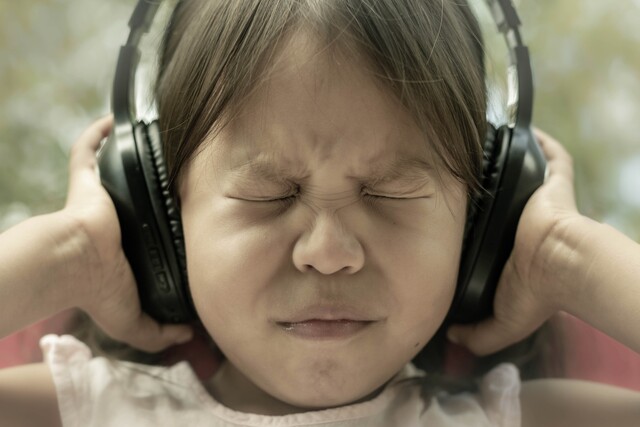Emotions can run wild, both when you are abusing drugs, alcohol, or tobacco. Things can really get out of hand when you are trying to get off these substances. Even so, giving up your addiction is an important thing to do, even though it isn't usually enough to provide you with the happiness you thought would be there after you quit using.
The upsurge of emotions when trying to quit drugs, alcohol, or tobacco is because there was a reason you became addicted in the first place and these reasons don't go away once you give up your drug of choice. Inability to deal with their emotions is one of the most common reasons why people turn to using substances and, even if you quit, you may have a lack of emotional intelligence that will still be there after quitting.
What is Emotional Intelligence?
The definition of "emotional intelligence" is that it is the ability of the addict, alcohol abuser, or tobacco abuser to control and assess their own emotions--both their own emotions and that of others. Emotional intelligence is measured using the EQ (which stands for emotional quotient), which like your IQ but is a different type of measurement as it measures different aspects of a person.
Overcoming Emotions in Drug Addiction
One of the most common problems for addicts is that they have problems coping with their emotions. In actuality, there is an overlap between alexithymia and drug addiction. Alexithymia is a medical problem where a person is unable to express their emotions through the use of language. The term "alexithymia" is Greek, meaning "without words".
Because drug users often suffer from alexithymia, they tend to self-medicate with drugs. They have a lack of emotional intelligence (EQ), which leads them to develop a drug addiction. Even if the individual becomes free of drugs, they can still have problems with their emotions and need to develop their EQ in order to remain drug-free.
What is required for emotional intelligence?
There are a number of skills necessary to have emotional intelligence. Some of these include the following:
-
The ability to control feelings, behaviors, and impulses. This is called having the "ability to self-manage".
-
Having good skills in relationships so that they can communicate effectively and build positive relationships.
-
The ability to understand the needs and emotions of other people--a skill known as "social awareness".
-
The ability to recognize one's own emotions and understand how this can affect behavior and thoughts. This is referred to as having "self-awareness".
To have a good emotional intelligence, a person needs the following:
-
The ability to use humor when handling life's difficulties
-
The development of the ability to deal with non-verbal communication
-
The ability to resolve conflicts with positive outcomes
-
The ability to lessen the individual's stress levels
-
The ability to manage emotions--and recognize them when they occur
Emotional Intelligence in Sobriety
When you give up drugs, you will become sober in the physical sense but this may not be what is necessary to be happy. This is because you will continue to be expected to handle your emotions and must do so without using drugs. In order to truly recover from drug addiction, you need to become sober in the emotional sense. This can take a long time but will lead to you being happier in all aspects of your life.
How can you develop your EQ after quitting Drugs?
It is possible to develop your emotional intelligence after you quit using drugs. Here are some ways you can accomplish this:
-
Find effective ways to handle stress. Once you know that you are dealing with stress, you need to handle this. There are many ways of doing this. You can try relaxation techniques, exercise, talking to others, or spend some time outdoors in order to deal with stress.
-
Learn ways of recognizing stress. You may be under stress so often that you can't recognize what you're going through. This is problematic because you may be suffering from the consequences of stress without knowing it. Common symptoms of stress include having a lack of energy, feelings of anxiousness, depression, feeling antsy, feeling frustrated, having a decreased libido, negative thinking, increasing irritability, decreased appetite, a poor immune system, insomnia, muscular tension, unexplained physical symptoms, regular headaches, upset stomach, and an inability to think clearly.
-
Increase your ability to listen. You need to learn how to listen as this is a vital skill if you want to have emotional intelligence. If you are self-obsessed, you will only pretend to be listening and won't actually have the skills to fully listen to others. Listening involves focusing on the other person's words fully and completely. You also need to give the other person time to say what they want to tell you. If you tend to interrupt other people, you need to try and count for five seconds after the person has finished speaking before you say anything back to them.
-
Learn to be empathetic to others. Empathy is the ability to understand and identify with another's situation. This is different from sympathy because, in empathy, you make the attempt to understand the other person's perspective rather than feeling sorry for the person. Being empathetic is a skill you need to learn. You need to use your own imagination so you can understand the other person and understand their perspective. Even if you think the other person is wrong, recognize that they may have a good reason for their actions. Empathy leads to greater understanding of the needs of others and to the other person feeling as though they are being heard.
-
Understand nonverbal communication. Communication is more than just hearing the words of others. You can learn a lot about another person by recognizing their body language. This is what non-verbal communication is all about. If you fail to understand the other person's body language, you may miss out on vital information the person is trying to convey. You may recognize more from the person's body language than from what they are saying.
-
Develop skills in conflict resolution. The ability to handle conflict is crucial. People often have competing desires and needs so that conflict is often unavoidable. If you are not skilled in conflict resolution, you may find yourself arguing with others often and having bad feelings toward others. By learning conflict resolution, you can become a better person after you become drug-free.
-
Learn to recognize your and other's emotions. Recognizing emotions is another thing that people who are addicted to drugs have problems with. This is why some people use drugs or overeat. They mistake feelings of boredom and fatigue with the need to use drugs or the need to overeat. When you can recognize your own emotions and those of others, you can experience a better emotional quotient.
-
Self-understanding and mindfulness meditation. This is a technique used to help people better understand their internal milieu. When you are mindful, you become better able to identify your emotions but you can better manage them. Mindfulness involves learning how to full accept what is happening and living in the moment instead of on past traumas and other difficulties. You will learn, through mindfulness, that emotions are transitory and not that difficult to deal with.
-
Find humor in situations that are difficult. If you can see the lighter side of life, you will have a better EQ. Humor is both effective for the addict but can also help others who are coping with a difficult problem. You don't need to make a joke out of everything but, if you can appreciate that even difficult situations have a humorous element, your EQ will be better.
-
Be willing to face life on its own terms. In order to have a reasonable EQ, you need to be able to face life as it comes. This means not finding the easy way out or running away from difficult situations. The obstacles you face in life are there to help you grow and develop. By overcoming challenges in your path, you are forced to develop coping strategies that will improve your EQ. Eventually, you achieve emotional sobriety and life becomes easier.
Overcoming Emotions in Alcohol Recovery
Dealing with difficult emotions often leads people to turn to alcohol. There can be emotions that result in damage to your recovery from alcohol. You ae often on an emotional rollercoaster, particularly when first stopping drinking. You may experience moods swings that only settle down after you have been sober from alcohol for several months. Some even have difficulty overcoming emotions several years after becoming sober.
Coping with your emotions can be difficult in alcohol recovery. If you can't cope with your emotions, you can jeopardize your sobriety. Emotions that often lead to the most difficulty in sobriety include the following:
-
Excessive joy (pink cloud syndrome)
-
Boredom
-
Guilt
-
Disappointment
-
Fearfulness
-
Anger
-
Loneliness
The Difference between Feelings and Emotions
May people use these terms interchangeably, although technically these two words are different. Emotions represent a "state of feeling" that comes out of something that is happening in the present or something that has traumatized you in the past. Emotions can involve many feelings. For example, love is an emotion that comes out of trust and joy.
The Danger to being Lonely in the Recovery Process
You need to recognize that there is a difference between feeling lonely and being alone. You can be standing in the midst of a crowded room and may still feel lonely. Loneliness is the experience involving intense feelings of emptiness and solitude. We, as humans, are generally very social so that, in stopping alcohol use, you may have difficulty with loneliness, especially if drinking helped you to be more social.
Giving up alcohol can mean you are walking away from your friends who continue to use alcohol. This is because you shouldn't be around your former drinking buddies after you have become sober. This can lead to intense loneliness that can get in the way of recovery. The best way around this is to develop a new social network and is something that can be accomplished by joining groups such as Alcoholics Anonymous or by finding friends who do not drink.
Resentment and Anger can lead to Relapse
Being angry is one of the most dangerous things you can do when you first stop drinking. It is dangerous because you can't think straight when you are angry. You can fall into the trap of doing things you'll later regret. While it is normal to be irritated from time to time, recovery from alcohol abuse means being cautious not to be angry so much.
One of the emotions that leads to anger is resentment. You feel resentment when you feel that someone has wronged you in some way. These wrongs can be imagined or real. People in recovery can be resentful if you feel as though your efforts are not appreciated by others or if you feel as though others are getting in the way of your recovery. This can cause self-destructive thoughts that can interfere with sobriety and can lead to relapse. Resentment can fuel anger and, if you hope to be successful as a former alcoholic, you need to overcome this emotion.
Fearing the Future
Fearing the future keeps you trapped in the addictive process and it can prevent you from progressing in your recovery. Common things people feel fearful about in recovery include the following:
-
Fearing that you won't be happy in recovery
-
Having a fear of relationship problems
-
Having a fear of poor health
-
Having a fear of dying
-
Having fears about how to remain sober indefinitely
-
Having fears of financial problems
The main thing you want to know about fear is that it involves worrying about things that have not yet happened or may never happen in the future. This means that you need to let go of the future. It involves having faith that the future will be brighter. It means that you must believe you are doing the best you can to remain sober. Fear can be devastating to a person in recovery and can lead to emotional paralysis so that you don't take the actions necessary for success in recovery.
Disappointment by Expecting too much out of Sobriety
It is natural to expect an improvement in your life after quitting alcohol. This is justified but the main problem occurs when you expect everything to be perfect as soon as you are sober. You fail to recognize the first axiom of recovery and that is that "recovery is a process and not an event". It can take years to rebuild your life after you become sober to the point where you feel as though you are happy most of the time. You will always need to improve as you recover from alcohol.
Achieving sobriety means that your life will significantly improve. If your expectations are unrealistic, however, it can easily lead to disappointment. When you are newly sober, you may begin to question your ability to remain that way. You can feel cheated because living sober isn't as fun as you thought it would be. You may not be willing to put in the necessary work to build the life you have dreamt about in the first place.
Guilt can be Dangerous
Guilt can be an extremely self-destructive when you are in alcohol recovery. You should feel remorse over things you may have done while using alcohol but being guilty is of no use to you. The only function guilt has is that it becomes an excuse to return to drinking again.
It isn't possible to change the past so the best you can do is maintain a focus on the future. If you stay away from guilt, you will be able to better make amends to those you have harmed as a result of your drinking behavior. If you joint a 12-step group, you will be asked to take a personal inventory of those things you did while you were drinking and make amends for those things that were harmful to you or others. This can help you handle your guilt in a healthier way.
Boredom in Recovery from Alcohol Abuse
One of the reasons why you drink, particularly in the beginning is that you feel bored with your life. When you feel bored, you don't find anything interesting in your surroundings. This is a bad mind frame to be in but is something you may feel on occasion. Those who experience too much boredom may find life less satisfying. This causes all sorts of negative thinking. You may begin to think of your drinking years as a time of more excitement than you are experiencing in recovery.
If you give up drinking, you will find that you have more time on your hands. This is because, in the past, you spent a lot of time thinking about drinking. When you become free of alcohol, there will be huge lapses in time where you feel you have nothing to do. This is why it is crucial to find new things to do so you don't experience as much boredom. Fortunately, most alcoholics eventually feel as though they don't have the time to do the things they want to do.
Coping with Emotions in Alcohol Recovery
You can do a number of things that will help you better handle difficult emotions that come up as a result of being newly sober. Here are some options:
-
Join an AA group so that you have others to share your emotions with
-
Attend therapy in order handle difficult emotions
-
Journal in order to have better clarity around your emotions
-
Practice mindfulness meditation techniques
-
Learn strategies for coping with negative emotions like guilt and anger
Overcoming Emotions in Smoking Cessation
There are many emotions that come up when you are trying to quit smoking. You may go through a grieving process now that you aren't smoking cigarettes or using alcohol. There are five stages of this type of grieving process, including the following:
1. Denial
2. Anger
3. Bargaining
4. Depression
5. Acceptance
You will likely go through these things as part of your recovery from smoking addiction.
In denial, you may feel disbelief around your tobacco abuse. You may feel as though things aren't really happening to you. After this, you may feel angry. You may wonder why you are going through this process and take out your anger on others. After this comes bargaining. You may try to repent for those things you did while you were a smoker. Eventually, you become depressed and may feel like using cigarettes again. You may isolate yourself from others and may mourn your loss of cigarettes or other tobacco products. Eventually, you learn to accept yourself and your new role as a nonsmoker.
How to Cope with Emotions without Smoking
While stress is a normal aspect of life and can help your reach your goals (if you have mild to moderate stress), extreme stress can lead to problems with relapsing into smoking or using tobacco again. Managing this stress is crucial to being able to quit smoking. Some people who smoke feel as though the only way to deal with stress and having negative emotions is by smoking again.
You may have used smoking to deal with stress. Fortunately, there are ways of handling stress without smoking. Here are a few tips you can put into practice in order to cope with emotions without smoking:
-
Visualize. Find a place to think about where you feel relaxed, comfortable, and safe. See it as clearly as possible, including using all your senses. Allow yourself to be there for a while until you feel better.
-
Breathe. Take some slow and deep breaths, inhaling through your nose and exhaling through your mouth. You will feel your body beginning to relax.
-
Relax. You can hold onto tension and stress in your body. Try to determine who stress is affecting your body and identify where you are feeling tension. Find ways to reduce your tension so that you can decrease your stress levels. Try stretching, having a massage, or taking a warm bath.
-
Exercise. Exercising releases endogenous endorphins--neurochemicals that help you feel better and help reduce your levels of stress. Try walking as a means to reduce stress.
-
Focus. Being a non-smoker can be overwhelming at times. Try not to worry too much about the future and instead focus on the present day and what you will do to overcome smoking today.
-
Talk with others. Try to share how you are feeling with family, friends, your clergy person, or your therapies. Talk to those who support your decision to be smoke-free.
-
Decrease caffeine. Caffeine can help you remain awake but it can also lead to feelings of tension, jitteriness, and stressfulness. Cutting back on caffeine will reduce your stress levels. Try herbal tea or hot water with a lemon wedge so you can drink something without caffeine in it.
-
Take care of yourself. This may take extra effort but is worth it. Try doing basic things like getting plenty of sleep, drinking a lot of water, and eating a healthy diet.
-
Accept yourself. Life as a nonsmoker is sometimes unpredictable. There will always be some stress in your life, even after you quit smoking. Remember that there will be good days and bad days, even when you don't smoke.































